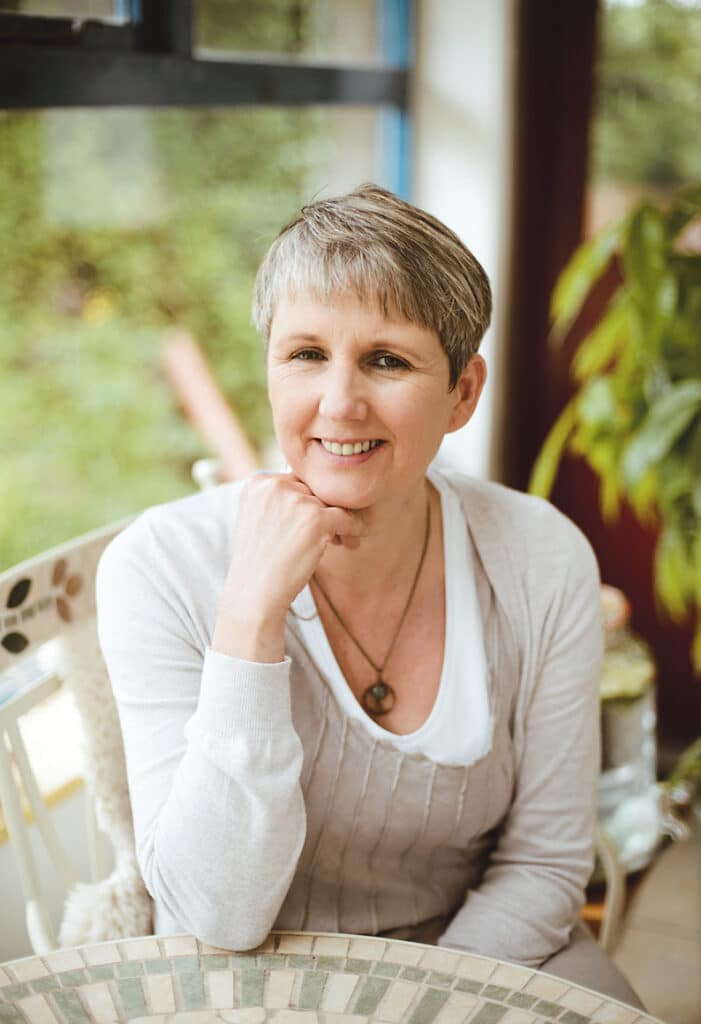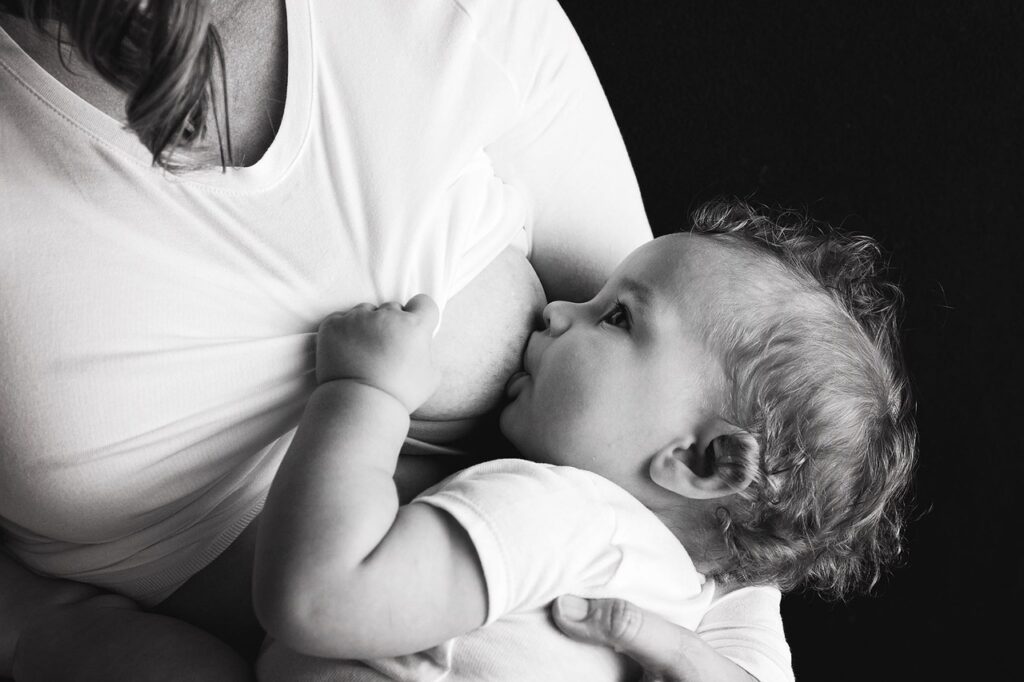“Thankfully, the pandemic has not impacted on the HSE Home Birth service too much,” says Community Midwife Elke Hasner. “We are still keeping our women, dads and families safe at home.”

The midwives follow a strict Covid-19 protocol. “I remember the strange feeling when I, and my second midwife, donned our PPE for the first time during a home birth in the house of my client. Thankfully, I had already established a great relationship throughout my ante natal visits and even the kids knew, it was me in the ‘space suit’.”
Elke is also still providing antenatal classes in person and online, and giving breastfeeding support in her capacity as a lactation consultant (both recognised by private health insurance).
Antenatal breastfeeding classes can be excellent to anticipate the most common problems in breastfeeding. Things like perceived lack of sufficient milk supply, ‘second night syndrome’, soreness, poor weight gain, or unrealistic sleep expectations in new parents.
“In my one-to-one breastfeeding classes, I give a broad overview about the most common pitfalls and every mum gets a fact sheet to take home with them, explaining normal infant behavior, information on good latch and feeding positions,” she explains.
“I offer breastfeeding support after the birth also, including house calls within a certain radius.”
Elke’s breastfeeding support is very individual; there is no ‘one size fits all’ approach to pregnancy, birth and breastfeeding.
“There is only one statement in breastfeeding support that applies to all mothers,” she says
“‘Any problem in mum, or baby, or both, needs to be addressed first, before we resort to formula supplementation in the mother who wishes to breastfeed.’”
For most women, pregnancy is a special time filled with joy and anticipation about the changes ahead. However, the current Covid-19 outbreak has brought another aspect to all our lives, adding fear and anxiety to many women’s journeys. Based on her experience of nearly 40 years working in the community, Elke answers some common questions from expecting mothers on pregnancy and birth during a pandemic:
Is it safe to attend your Health Care Provider (HCP) for antenatal check-ups?
While many people are advised not to go to their GP practice here, it is important to check the pregnancy at recommended intervals. Social distancing isn’t always possible when doing vital checks, like establishing how the baby’s presenting, or checking your blood pressure. However, your HCP is trained to provide the safest way to protect you and your baby during those appointments.
In our home birth service here in Cork, for instance, we offer one-to-one appointments, clean our equipment according to Covid-19 protocol and protect you by wearing a mask, gloves and an apron during heartbeat checks and other antenatal checks. During a home birth, we wear protective equipment once the birth is imminent and make sure an individual and personal approach is maintained always.
In a service where touch and non-verbal encouragement is so very important, we had to change a lot and I very much miss the closeness to mum and baby that was taken from us by this virus. However, I am grateful for the fact that I have met my women and couples before the birth, we’ve been through this pregnancy together and have already established a relationship. And like our colleagues in the hospital, we smile with our eyes and convey our confidence that all is good through other channels.
What should I do if I, or someone I was in contact with, had symptoms?
Although research is still ongoing, the COVID-19 virus has not been found in vaginal fluid, in cord blood or breast milk, which is very reassuring. However, if you are having symptoms, or someone in your family is suspected of an infection, your baby should be born in a hospital and a home birth is not possible.
Can my birthing partner be present at the birth?
I am very happy to say that our service keeps the family unit safe at home and you have your birthing partner by your side.
How can I protect my baby and myself from and infection with Covid-19?
The advice is simple: stay at home, keep social distancing, wash your hands. Visitors can only see the new baby at a safe distance, which is very hard but absolutely vital for now.
Other recommendations are:
• Avoid contact with anyone displaying symptoms of coronavirus disease (COVID-19).
• Avoid public transport when possible.
• Work from home, where possible.
• Avoid large and small gatherings in public spaces, particularly in closed or confined spaces.
• Avoid physical gatherings with friends and family.
• Use telephone, texting, or online services to contact your midwife, obstetrician, and other essential services.
Can I safely breastfeed my baby?
Yes, as far as we know. The virus has not been detected in breastmilk to date and the mother and baby dyad should not be disrupted. If you are positive with Covid-19 wash your hands and wear a mask. Some research suggests, washing your breasts with soapy water might be beneficial also. If you are too ill to breastfeed, expressing breast milk might be an option also.
The importance of breastfeeding cannot be overstated and the pandemic has highlighted another positive aspect. Breastfeeding mothers don’t have to worry about formula supply in shops.
Please contact Elke at
elkehasner@gmail.com if you have questions relating to the HSE home birth service.


